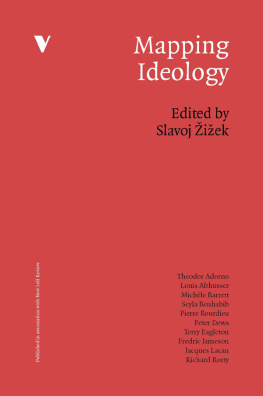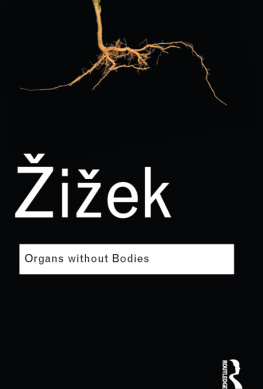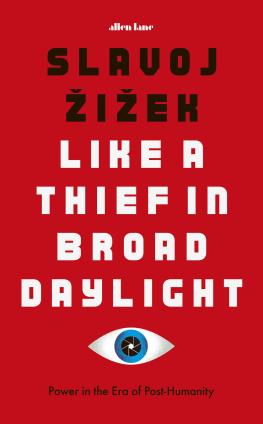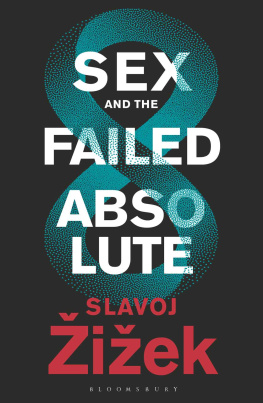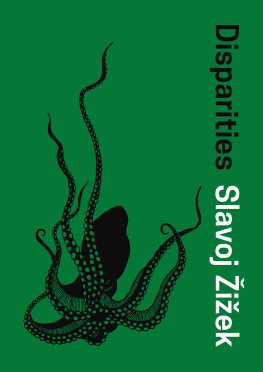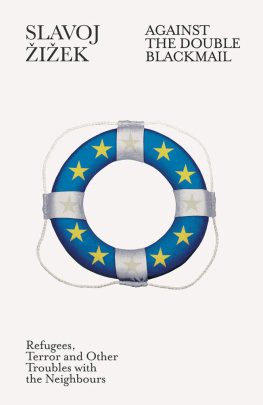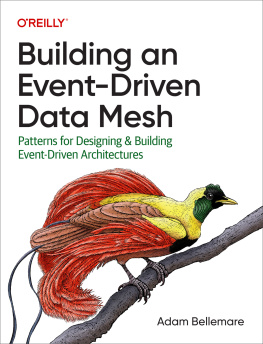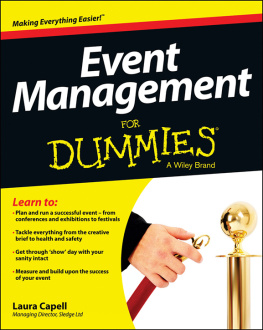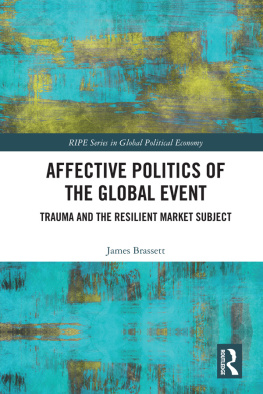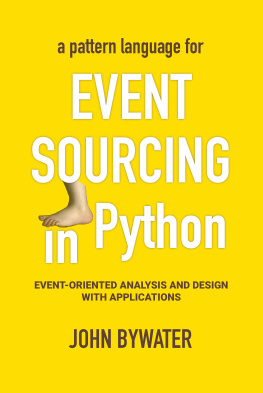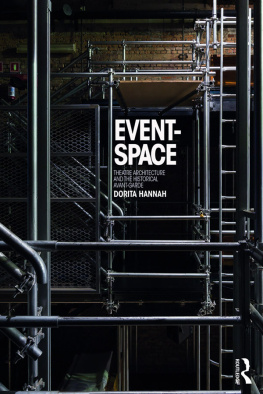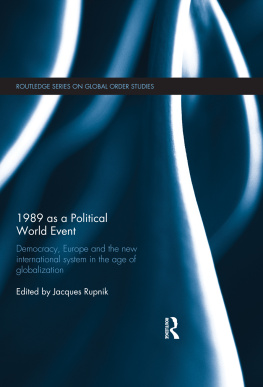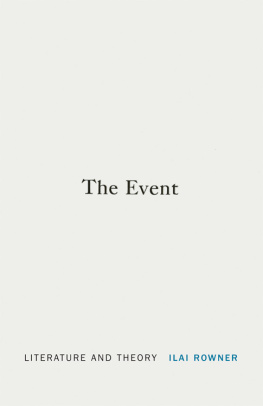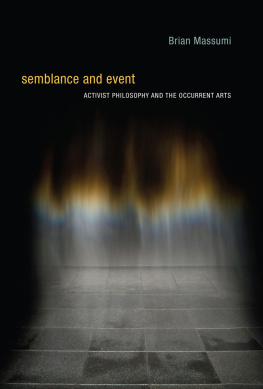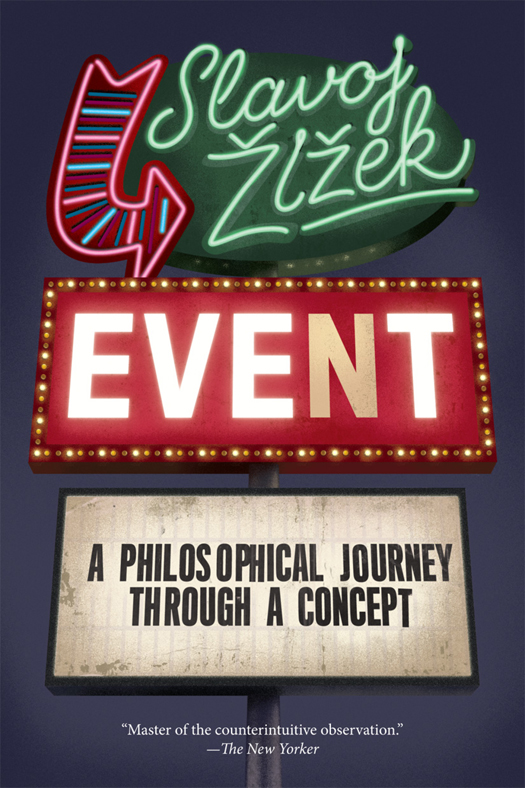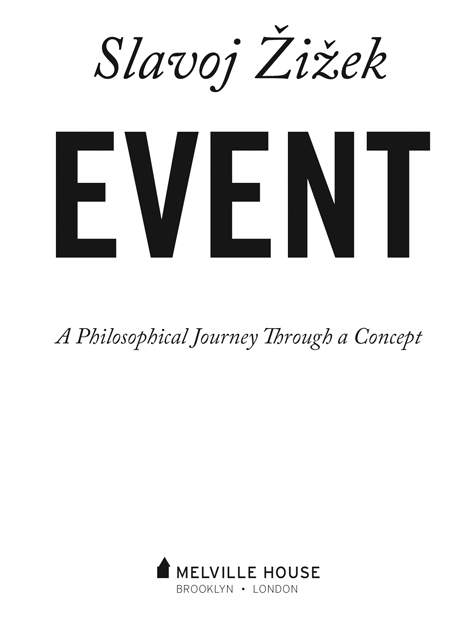PRAISE FOR SLAVOJ IEK
iek leaves no social or cultural phenomenon untheorized, and is master of the counterintuitive observation.
THE NEW YORKER
The giant of Ljubljana provides the best intellectual high since Anti-Oedipus.
THE VILLAGE VOICE
The most formidably brilliant exponent of psychoanalysis, indeed of cultural theory in general, to have emerged in many decades.
TERRY EAGLETON
Unafraid of confrontation and with a near limitless grasp of pop symbolism.
THE TIMES (UK)
iek is a thinker who regards nothing as outside his field: the result is deeply interesting and provocative.
THE GUARDIAN
[A] great provocateur and an immensely suggestive and even dashing writer iek writes with passion and an aphoristic energy that is spellbinding.
LOS ANGELES TIMES
A relentless iconoclast, a restless wordsmith, an inventive thinker witha hatred of received wisdom.
BOOKFORUM
The Elvis of cultural theory.
THE NEW YORK TIMES
EVENT
Copyright 2014 by Slavoj iek
Original edition published by Penguin Books Ltd, London
First Melville House printing: August 2014
Melville House Publishing
145 Plymouth Street
Brooklyn, NY 11201
and
8 Blackstock Mews
Islington
London N4 2BT
mhpbooks.com facebook.com/mhpbooks @melvillehouse
ISBN: 978-1-61219-412-7
eBook ISBN: 978-1-61219-412-7
Design by Christopher King
A catalog record for this book is available
from the Library of Congress.
v3.1
To Jela
The event of my life
TIMETABLE
ALL ABOARD
Event in Transit
A tsunami killed more than 200,000 people in Indonesia! A paparazzo snapped Britney Spearss vagina! I finally realized I have to drop everything else and help him! The brutal military takeover shattered the entire country! The people have won! The dictator has run away! How is something as beautiful as Beethovens last piano sonata even possible?
All these statements refer to that which at least some of us would consider an event an amphibious notion with even more than fifty shades of grey. An Event can refer to a devastating natural disaster or to the latest celebrity scandal, the triumph of the people or a brutal political change, an intense experience of a work of art or an intimate decision. Given all these variations, there is no other way to introduce order into the conundrum of definition than to take a risk, board the train and start our journey with an approximate definition of event.
Agatha Christies 4.50 from Paddington opens in the middle of a journey on a train from Scotland to London, where Elspeth McGillicuddy, on the way to visit her old friend Jane Marple, sees a woman being strangled in the compartment of a passing train (the 4.50 from Paddington). It all happens very fast and her vision is blurred, so the police dont take Elspeths report seriously as there is no evidence of wrongdoing; only Miss Marple believes her story and starts to investigate. This is an event at its purest and most minimal: something shocking, out of joint that appears to happen all of a sudden and interrupts the usual flow of things; something that emerges seemingly out of nowhere, without discernible causes, an appearance without solid being as its foundation.
There is, by definition, something miraculous in an event, from the miracles of our daily lives to those of the most sublime spheres, including that of the divine. The evental nature of Christianity arises from the fact that to be a Christian requires a belief in a singular event the death and resurrection of Christ. Perhaps even more fundamental is the circular relationship between belief and its reasons: I cannot say that I believe in Christ because I was convinced by the reasons for belief; it is only when I believe that I can understand the reasons for belief. The same circular relation holds for love: I do not fall in love for precise reasons (her lips, her smile ) it is because I already love her that her lips, etc. attract me. This is why love, too, is evental. It is a manifestation of a circular structure in which the evental effect retroactively determines its causes or reasons. And the same holds for a political event like the prolonged protests on Tahrir Square in Cairo which toppled the Mubarak regime: one can easily explain the protests as the result of specific deadlocks in Egyptian society (unemployed educated youth with no clear prospects, etc.), but somehow, none of them can really account for the synergetic energy that gave birth to what went on.
In the same way, the rise of a new art form is an event. Let demonstrates that all the main features that constitute the common definition of film noir (chiaroscuro lighting, askew camera angles, the paranoiac universe of the hard-boiled novel with corruption elevated to a cosmic metaphysical feature embodied in the femme fatale) were already present in Hollywood films. However, the enigma that remains is the mysterious efficiency and persistence of the notion of noir: the more Vernet is right at the level of facts, the more he offers historical causes, the more enigmatic and inexplicable becomes the extraordinary strength and longevity of this illusory notion of noir the notion that has haunted our imagination for decades.
At first approach, an event is thus the effect that seems to exceed its causes and the space of an event is that which opens up by the gap that separates an effect from its causes. Already with this approximate definition, we find ourselves at the very heart of philosophy, since causality is one of the basic problems philosophy deals with: are all things connected with causal links? Does everything that exists have to be grounded in sufficient reasons? Or are there things that somehow happen out of nowhere? How, then, can philosophy help us to determine what an event an occurrence not grounded in sufficient reasons is and how it is possible?
From its very inception, philosophy seems to oscillate between two approaches: the transcendental and the ontological or ontic. The first concerns the universal structure of how reality appears to us. Which conditions must be met for us to perceive something as really existing? Transcendental is the philosophers technical term for such a frame, which defines the co-ordinates of reality for example, the transcendental : metaphysical questions about the origin of the universe, etc., which were once the topic of philosophical speculations, can now be answered through experimental science and thus empirically tested.
What cannot but strike the traveller is that both approaches culminate in some notion of Event: the Event of the disclosure of Being of the horizon of meaning which determines how we perceive and relate to reality in Heideggers thought; and in the Big Bang (or, broken symmetry), the primordial Event out of which our entire universe emerged, in the ontic approach, upheld by quantum cosmology.
Our first tentative definition of event as an effect which exceeds its causes thus brings us back to an inconsistent multiplicity: is an event a change in the way reality appears to us, or is it a shattering transformation of reality itself? Does philosophy reduce the autonomy of an event or can it account for this very autonomy? So again: is there a way to introduce some order into this conundrum? The obvious procedure would have been to classify events into species and sub-species to distinguish between material and immaterial events, between artistic, scientific, political and intimate events, etc. However, such an approach ignores the basic feature of an event: the surprising emergence of something new which undermines every stable scheme. The only appropriate solution is thus to approach events in an evental way to pass from one to another notion of event by way of bringing out the pervading deadlocks of each, so that our journey is one through the transformations of universality itself, coming close so I hope to what Hegel called concrete universality, a universality which is not just the empty container of its particular content, but which engenders this content through the deployment of its immanent antagonisms, deadlocks and inconsistencies.


